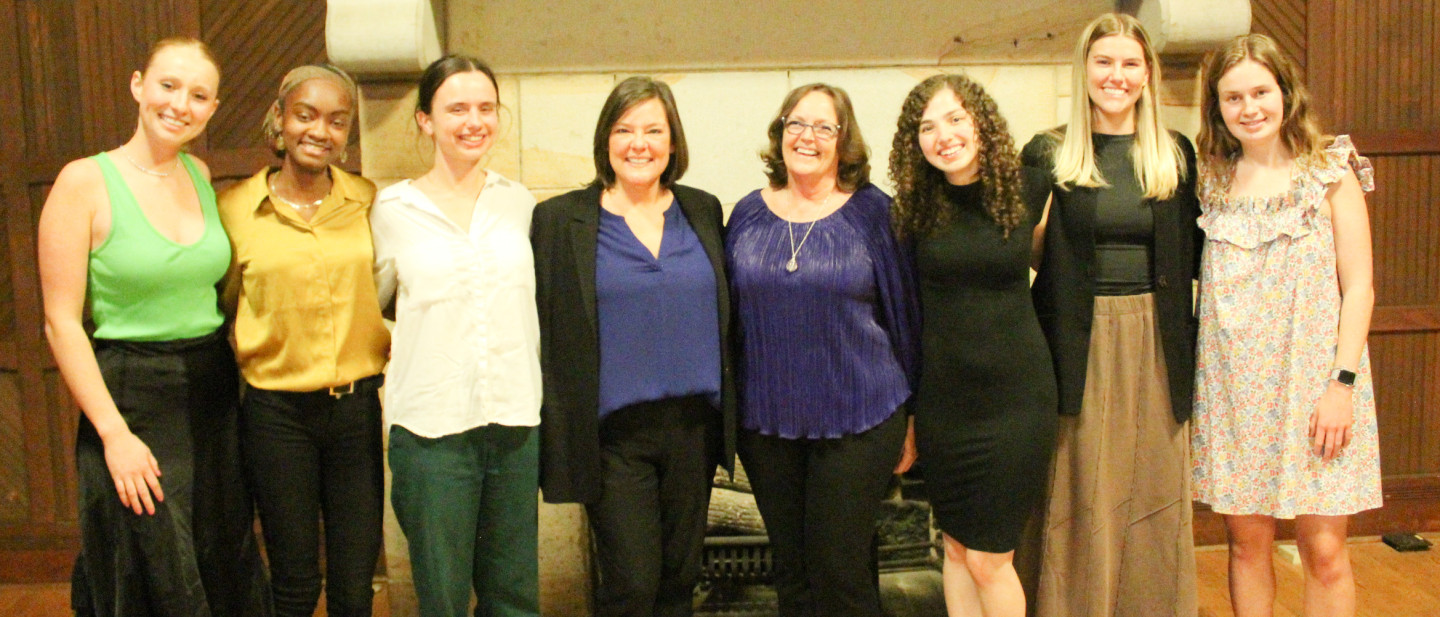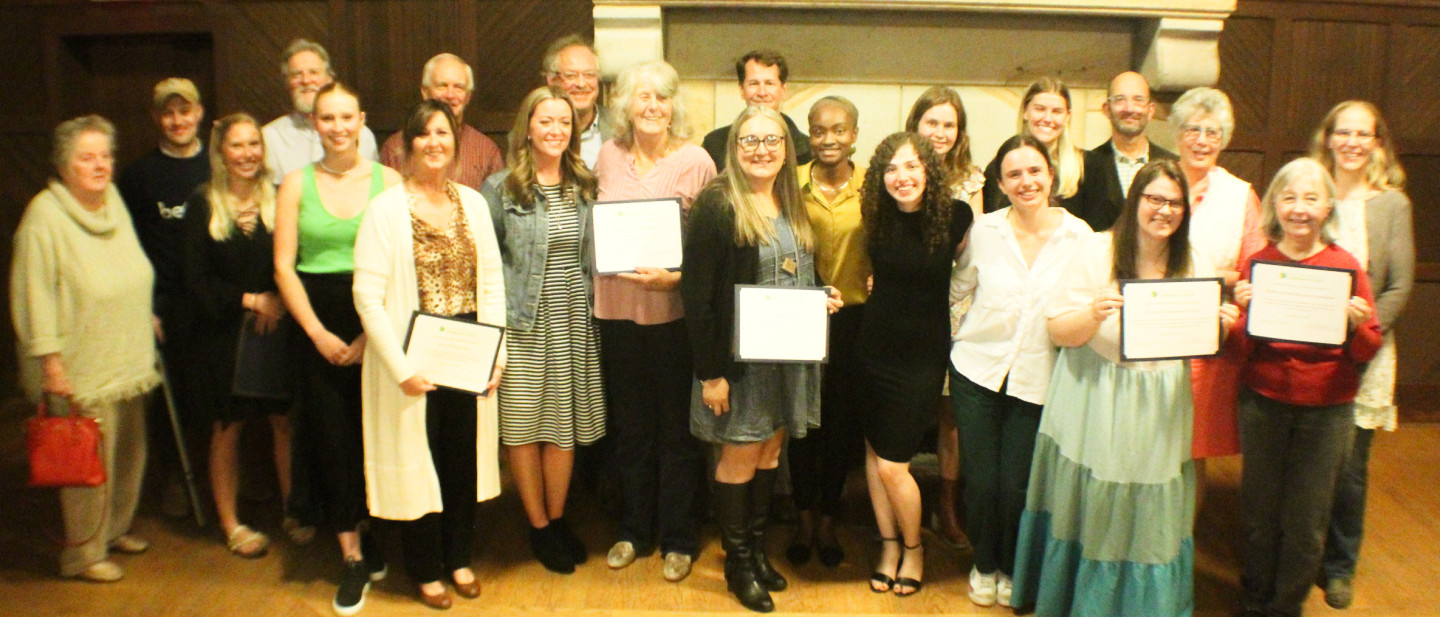Philanthropy Interns Advance Local Nonprofits’ Community Impact Through Grants Making
In a special ceremony held at Convocation Hall on November 16th, students of the Philanthropy Internship Program awarded $30,000 in grant funding to local nonprofit organizations and government agencies. It was the culmination of a year of study about the history and philosophy of philanthropy, and the practical application of knowledge on the impactful work of philanthropic foundations.
Now in its eighth year, the two-semester four-credit Philanthropy Internship Program (PIP) teaches students about the history and emerging trends of philanthropy in America, challenges assumptions about giving, and helps students develop their own personal and individual philanthropic vision and philosophy. Additionally, students gain practical experience in the work of philanthropic foundations. They shadow a grants committee during the Easter semester. They then act as their own mini-foundation in the Advent semester, conducting their own grants making process and awarding money to advance the impactful work of local nonprofit organizations on the South Cumberland Plateau.
The course is made possible by generous funding from the Civic Engagement Endowment for Community Philanthropy and the McCardell Endowment for Community Philanthropy, and is conducted in partnership with the South Cumberland Community Fund. Since 2016, the program has invested over $200,000 in funding to approximately 30 area nonprofit and government agencies. It is taught by Katie Goforth, community development director for the Office of Civic Engagement and the South Cumberland Community Fund.

Philanthropy Interns Lily Brady (C’24), Kendall Buck (C’24), Adri Silva (C’24), Delana Turner (C’24), Catherine Belser (C’25) and Emma Grace Hendrickson (C’25) took seriously their roles as grants committee members. They carefully reviewed the eleven grant applications submitted and researched each grant applicant’s organization to better understand the organization, its mission and impact, and its capacity to be successful in implementing its proposed project. The interns made determinations about which applicants they wished to interview, and created thoughtful interview questions to critically evaluate each application. They conducted informative interviews with applicants and then engaged in serious and passionate debate with their fellow interns over the merits of each applicant’s funding request and its potential for addressing community problems. Experiencing first hand attributes of “good” and “challenging” interviews, the interns created a brochure of interview tips which will be made available to future applicants to help them prepare for a successful grant interview. Additionally, they made a comparative analysis of the differences between traditional philanthropic practices and trending “trust-based philanthropy”, and wrote suggestions to guide future PIP grant committees in transitioning to a more equitable trust-based philanthropy model.
At the grant awards ceremony, the philanthropy interns awarded a total of $30,000 in funds to BetterFi, Folks at Home, Grundy County Food Bank, Housing Sewanee, Marion Animal Resource Connection, Monteagle Elementary School, Mountain Goat Trail Alliance, Mountain T.O.P. and Town of Tracy City.

A highlight of the grant awards ceremony each year is the keynote address given by a philanthropic leader. This year’s keynote was given by Linsley Kinkade, senior U.S. programs director for Winrock International. Winrock is a global nonprofit organization headquartered in Little Rock, Arkansas, whose mission is to “empower the disadvantaged, increase economic opportunity and sustain natural resource”. The philanthropy interns had the opportunity to meet with Ms. Kinkade to discuss her philanthropic journey and share their own. Said Emma Grace Hendrickson, “Ms. Kinkade’s emphasis on the importance of supporting the people behind a mission and seeing their vision for the project greatly spoke to me, because what I was looking for when talking with the grant applicants was passion first and foremost.”
For the philanthropy interns, the program helped them better understand the broader Plateau community, including systems and structures of power and privilege that create inequity and deficits, and develop their own abilities and agency to address these issues through an equitable and collaborative philanthropic lens. Adri Silva reflected, “Through the Philanthropy Internship Program, I have learned that philanthropy is less about giving to people and more about serving alongside them.”

